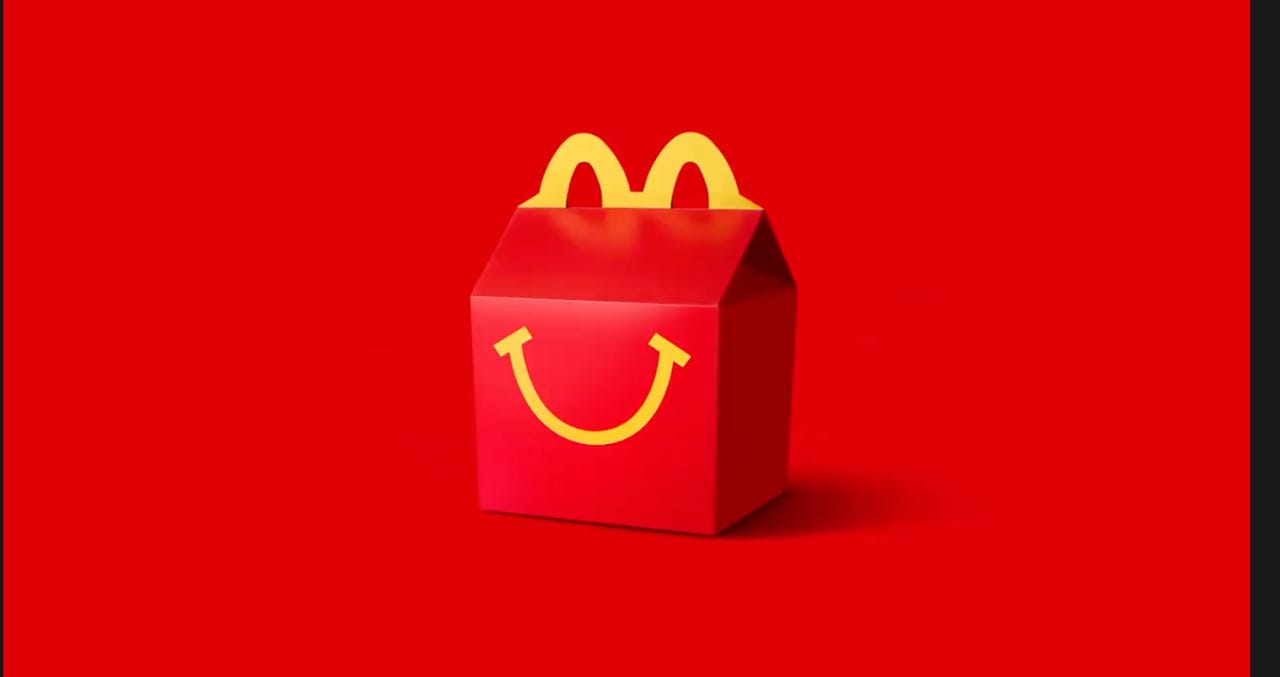In just a few days, McDonald's customers may not like what they see

And suddenly, no smiles.
There are certain things we've come to rely on during the pandemic.
more Technically Incorrect
The carelessness of some governments, for example. The arrogance of some local politicians, too, as they tell us to do one thing and themselves do another.
And then there's the utter reliability of fast food at a time of crisis.
When things are rough, we turn to pizzas and burgers because we're all tenderized chickens at heart, in need of simple pleasures when we're all cooped up.
McDonald's and other fast-food entities have managed to survive quite well during these darker days. You wouldn't think, then, that they'd want to upset customers at this delicate moment.
Yet severe grumblings are emerging from McDonald's franchisees and they haven't been caused by hunger. You see, as Restaurant Business reported, the franchisees and corporate headquarters have been fighting over, among other things, how payment will be made -- by the franchisees -- for a share of all the fancy technology the chain has introduced.
Not so long ago, McDonald's bought a company called Dynamic Yield. This boasted it could predict what customers would order and vary the displays at the drive-thru, using parameters such as the weather, the traffic, and whether there was a bigger line at Burger King. (I hope I'm joking about that last one.)
The purchase seems to have been a success. As the chain rolled out fancier menu displays, business improved. Why, its third-quarter results beat estimates, and beating Wall Street is what all executives strive to do, some legally.
Yet here is McDonald's telling franchisees it'll be charging them monthly for all the fancy tech, rather than every six months. This will involve a catch-up period, which will involve additional costs for the franchisees.
Fast food franchises work on extremely low margins. Adding perhaps $5,000 to a franchisee's costs isn't an uplifting prospect, no matter how well the drive-thru is doing.
Consider, too, that over the last ten years, the costs franchisees have had to pay for tech upgrades -- Wi-Fi, mobile ordering, and so on -- are ten times greater than previously.
But surely, you might imagine, the company has explained to individual restaurants how the tech has increased their profits. (I understand McDonald's still pays around two-thirds of the tech costs.)
Well, The Wall Street Journal happened upon an email sent by the National Owners Association -- an independent franchisees group -- to its members. It read, in part: "McDonald's deserves the best-in-class technology. This is not."
I'm not sure any corporation actually deserves anything, other than a jaundiced eye. But can it be true that the technological developments on which McDonald's is betting its future aren't all that?
The company has been desperately trying to catch up, technologically speaking. It's also been helping franchisees get through the pandemic by giving them breaks on rent. And many franchisees have been doing well.
Equally, franchisees have had to pay for PPE and other pandemic-related upgrades, such as plexiglass.
Customers know what happens when a restaurant's costs go up. Its prices go up. And McDonald's timing seems especially unfortunate, given that its announcement came with a couple of questionable side dishes.
The chain is removing a subsidy that keeps the prices of Happy Meals within happy parameters. That's another $3,600 per restaurant. Moreover, McDonald's also wants franchisees to participate in an employee education program, previously funded solely by the chain.
This may be headed for a parking lot fracas. Worse, these monetary shifts are due to begin in January.
McDonald's admits that communication between itself and its franchisees hasn't been the finest over this issue. Sometimes, it's the tone and manner of these announcements of change that rankle the most.
It's surely unwise, however, to be arguing over who pays how much and how for fancier tech when the company is spending hundreds of millions of dollars on ad campaigns featuring stars such as Travis Scott and J Balvin.
Franchisees may now have a difficult decision to make. McDonald's only controls the pricing at 5% of its locations. The remainder, therefore, will surely wonder whether to add half a dollar to this item and another few cents to a few more, partly to pay for technology that is supposed to stimulate demand.
The dance, of course, is whether any upward price adjustment will actually reduce that demand.
Surely McDonald's could use some fine proprietary algorithm to give franchisees the answer.
